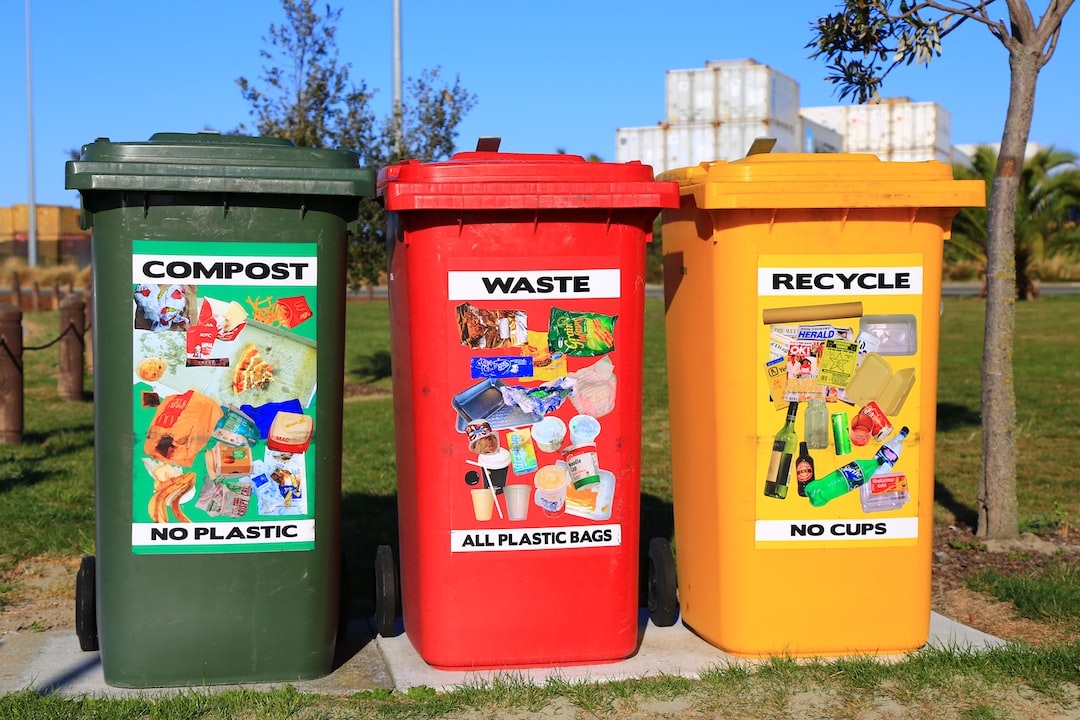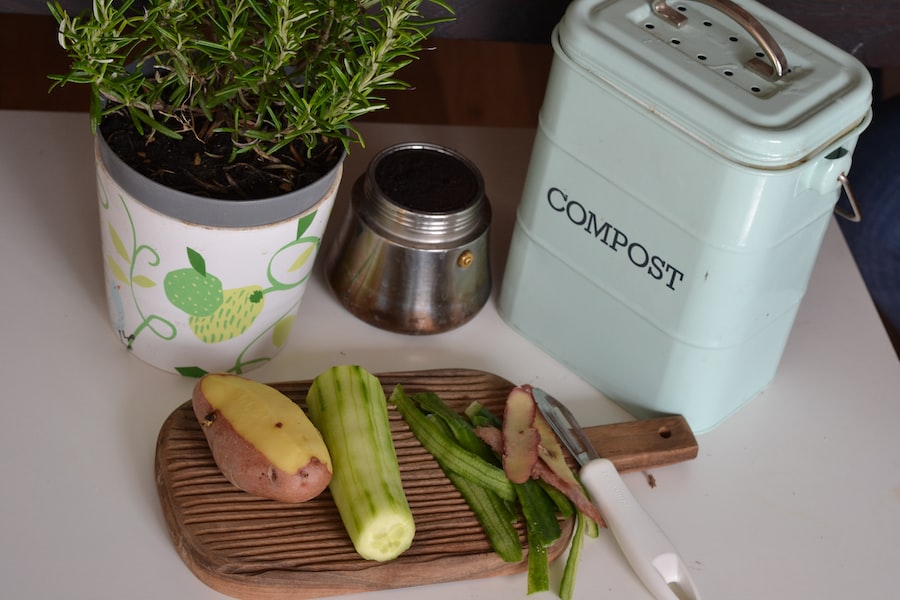Boost Your Garden’s Health: How Much Compost Should You Add to Your Soil?

Composting is the process of decomposing organic materials, such as food scraps, yard waste, and leaves, into nutrient-rich soil. It is an essential practice for gardeners who want to improve the health and fertility of their soil. Composting not only reduces waste and landfill usage but also provides numerous benefits for garden health. By understanding the importance of composting, gardeners can create thriving gardens with nutrient-rich soil.
Key Takeaways
- Composting is important for your garden because it improves soil health and structure, reduces erosion and runoff, and creates nutrient-rich soil.
- Compost improves soil fertility by adding organic matter, beneficial microorganisms, and essential nutrients.
- Composting techniques include hot composting, cold composting, and vermicomposting, and the ideal compost-to-soil ratio is 1:3.
- Factors to consider when determining how much compost to add include soil type, plant type, and nutrient levels.
- Before adding compost, test your soil for nutrient levels and pH, and apply compost to garden beds by spreading it evenly and mixing it into the top few inches of soil.
Why Compost is Important for Your Garden
Composting offers a wide range of benefits for your garden. Firstly, it helps to improve soil structure. When organic materials are composted, they break down into a dark, crumbly substance known as humus. This humus helps to improve the structure of the soil by increasing its ability to hold water and nutrients. It also improves aeration and drainage, creating an ideal environment for plant roots to grow.
Secondly, composting increases soil fertility. The decomposition process in composting releases essential nutrients such as nitrogen, phosphorus, and potassium into the soil. These nutrients are vital for plant growth and development. Additionally, compost contains beneficial microorganisms that help break down organic matter and release nutrients in a form that plants can easily absorb.
Understanding the Benefits of Compost for Soil Health
Composting plays a crucial role in improving soil structure and fertility. The decomposition of organic materials in composting creates a stable soil structure that is resistant to erosion and compaction. This improved structure allows for better water infiltration and retention, reducing the risk of runoff and erosion.
Furthermore, composting increases soil fertility by providing a rich source of organic matter and nutrients. Organic matter acts as a sponge, holding onto water and nutrients and releasing them slowly over time. This helps to prevent nutrient leaching and ensures that plants have a steady supply of essential elements for growth.
How Compost Improves Soil Structure and Fertility
| Benefits of Composting | How it Improves Soil Structure and Fertility |
|---|---|
| Reduces Landfill Waste | Composting diverts organic waste from landfills, reducing methane emissions and creating a valuable soil amendment. |
| Increases Soil Organic Matter | Compost adds organic matter to soil, improving soil structure, water-holding capacity, and nutrient availability. |
| Enhances Soil Microbial Activity | Compost contains beneficial microorganisms that help break down organic matter and release nutrients for plant uptake. |
| Reduces Soil Erosion | Compost helps bind soil particles together, reducing erosion and improving soil stability. |
| Improves Plant Growth and Health | Compost provides essential nutrients and improves soil structure, leading to healthier plants with increased yields. |
Composting improves soil structure by adding organic matter that binds soil particles together. This creates aggregates, which are small clumps of soil that provide pore spaces for air and water movement. These aggregates also help to prevent compaction, allowing plant roots to penetrate the soil more easily.
In terms of fertility, composting enriches the soil with essential nutrients. As organic materials decompose, they release nitrogen, phosphorus, and potassium, which are known as macronutrients. These macronutrients are essential for plant growth and are often lacking in depleted soils. Compost also contains micronutrients such as iron, manganese, and zinc, which are necessary for healthy plant development.
The Role of Compost in Reducing Soil Erosion and Runoff
Composting can play a significant role in reducing soil erosion and runoff. When organic matter is added to the soil through composting, it helps to create a protective layer on the surface. This layer acts as a barrier against raindrops, preventing them from directly hitting the soil and causing erosion.
Additionally, compost improves the water-holding capacity of the soil. The organic matter in compost acts like a sponge, absorbing water and holding onto it for longer periods. This reduces the amount of runoff that occurs during heavy rainfall, allowing more water to infiltrate into the soil.
Composting Techniques to Create Nutrient-Rich Soil

There are several composting techniques that gardeners can use to create nutrient-rich soil. The most common method is backyard composting, where organic materials are piled up in a designated area and left to decompose over time. This method requires regular turning or mixing of the pile to ensure proper decomposition.
Another technique is vermicomposting, which involves using worms to break down organic materials. Worms consume the organic matter and excrete nutrient-rich castings, which can be used as a natural fertilizer for plants.
Lastly, there is also the option of using a compost tumbler or bin. These containers provide a controlled environment for composting, allowing for faster decomposition and easier management of the compost pile.
The Ideal Compost-to-Soil Ratio for Optimal Garden Health
The ideal compost-to-soil ratio depends on the specific needs of your garden. In general, a ratio of 1:4 or 1:5 is recommended, meaning that for every part of compost, you should mix it with four or five parts of soil. This ratio ensures that the soil is enriched with organic matter and nutrients without overwhelming the plants.
It is important to note that adding too much compost can lead to nutrient imbalances and excessive plant growth. On the other hand, adding too little compost may not provide enough nutrients for optimal plant growth. It is best to start with a conservative amount and monitor the health and growth of your plants. Adjustments can be made accordingly.
Factors to Consider When Determining How Much Compost to Add
When determining how much compost to add to your garden, there are several factors to consider. Firstly, consider the nutrient needs of your plants. Some plants require more nutrients than others, so it is important to research the specific requirements of the plants in your garden.
Secondly, consider the current condition of your soil. If your soil is already rich in organic matter and nutrients, you may not need to add as much compost. Conversely, if your soil is depleted or lacking in nutrients, you may need to add more compost to improve its fertility.
Lastly, consider the size of your garden and the amount of compost you have available. It is important to have enough compost to cover the entire garden bed evenly. If you do not have enough compost, you can always supplement with other organic fertilizers or amendments.
How to Test Your Soil for Nutrient Levels Before Adding Compost
Before adding compost to your garden, it is recommended to test your soil for nutrient levels. Soil testing can provide valuable information about the pH level, nutrient content, and overall health of your soil. There are various soil testing kits available that allow you to collect a sample and send it to a laboratory for analysis.
Once you receive the results of your soil test, you can interpret the data to determine the specific nutrient needs of your soil. This will help you determine how much compost or other fertilizers to add to your garden. It is important to follow the recommendations provided by the soil testing laboratory to ensure optimal plant growth.
Tips for Applying Compost to Your Garden Beds
When applying compost to your garden beds, there are a few tips to keep in mind. Firstly, make sure to spread the compost evenly over the entire bed. This will ensure that all plants receive an equal amount of nutrients.
Secondly, mix the compost into the top few inches of soil. This will help incorporate the organic matter and nutrients into the root zone of the plants. Use a garden fork or shovel to gently work the compost into the soil.
Lastly, water the garden bed thoroughly after applying compost. This will help settle the compost and ensure that it makes good contact with the soil. Watering also helps to activate the beneficial microorganisms in the compost, which will aid in decomposition and nutrient release.
Maintaining a Healthy Garden with Regular Composting Practices
Regular composting practices are essential for maintaining a healthy garden. By continually adding organic matter and nutrients through composting, you can replenish depleted soils and promote long-term soil health.
One way to maintain regular composting practices is by creating a composting system that fits your lifestyle and needs. Whether it’s a backyard compost pile, vermicomposting setup, or compost tumbler, find a method that works best for you and commit to regularly adding organic materials.
Additionally, it is important to monitor the health and growth of your plants. If you notice any signs of nutrient deficiencies or poor soil quality, adjust your composting practices accordingly. Regularly testing your soil and making adjustments as needed will help ensure that your garden remains healthy and productive.
Composting is a vital practice for gardeners who want to improve the health and fertility of their soil. By understanding the benefits of composting and how it improves soil structure and fertility, gardeners can create thriving gardens with nutrient-rich soil. By following composting techniques, determining the ideal compost-to-soil ratio, and regularly testing and adding compost to garden beds, gardeners can maintain a healthy garden and enjoy the many benefits of composting. Start composting today for a healthier garden tomorrow.



